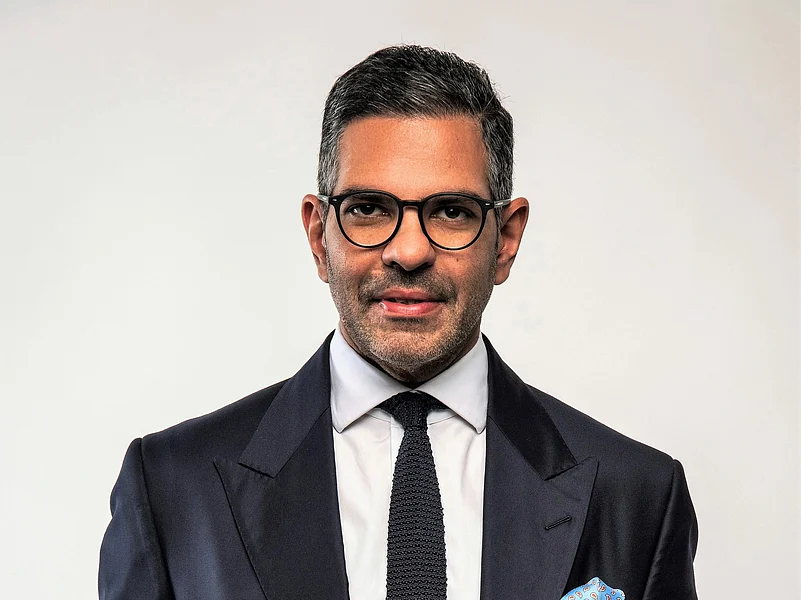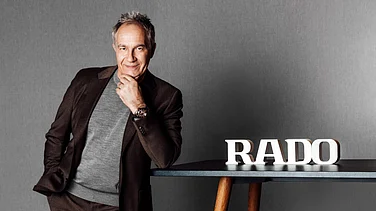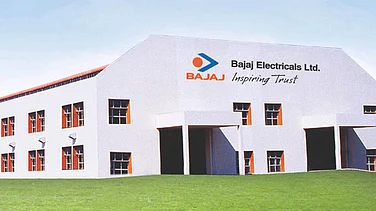Chairman of auto components manufacturer Sona Comstar, Sunjay Kapur, is bullish on the prospects of India. In an exclusive interaction with Outlook Business, he says that companies in the country need to ensure that India becomes a manufacturing base.
Sona Comstar recently announced its Q2 results. The company posted profit after tax of Rs 130 crore and revenue of Rs 716 crore. Amidst the push for domestic component manufacturing, government has paid attention to companies in the segment.
Kapur talks about Sona Comstar's plan in EV segment, need for component manufacturers to up their game and the impact of government schemes on ensuring India's competitiveness
There is a lot of focus on components industry at the moment due to ambitions of original manufacturing rather than just doing assembly. How would you assess the situation given the push for reducing components’ import from China?
From the manufacturing perspective in India, the China+1 strategy is showing positive results as we can see an increase in the exports as well as the revenue. The component industry grew 33 per cent last year going from $56 billion to $70 billion and 30 per cent of that came from exports. The majority of the exports goes to the United States.
I can see this playing out in a positive way in terms of additional capacity being installed by different companies which are coming to India. These developments align with our ongoing investment in technology which the government is encouraging and pushing towards us through Production Linked Incentive (PLI) schemes.
When we talk about assembly versus original manufacturing and whether we look at build-to-print against build-to-design that is a varying factor because some companies adhere to build-to-print approach but most companies are designing. Designing in India is very essential for the completeness of the 'Make in India' initiative.
Companies are investing more in technology because despite being the third largest market in terms size, India constitutes only 2 per cent of the world's automotive market by value because of which component players are exploring export opportunities beyond India and that is where the impetus lies. At the same time, push for localisation is aimed at reducing dependence on any imports including Chinese imports.
However, the fact is that companies in the component industry are not investing enough in capacity as the average is between 0.5-1 per cent of revenue while the average should be 3-5 per cent of revenue. The companies need to up their spending in technology and that’s happening slowly because people are realising that the larger market exist outside of India. From a supply perspective, there are several international purchase offices in India, collaborating with Indian companies to source products globally.
The larger vision for any Indian company or the Indian economy should be to establish a manufacturing hub in India for the world.
There is a fear that India’s EV revolution can become dependent on China. How important is the supply chain resilience going to be in the next 5-10 years so that we can establish ourselves as an EV manufacturing base?
I will emphasise on the importance of investment in technology and alternate resource materials. In context of batteries, a crucial component for EVs, people will find a solution for solid state or other battery solutions which will reduce dependence on China because the world doesn’t want to be dependent on one country, therefore, innovation will happen in material science, technology, and processes.
The industry will adapt very quickly to these changes because localisation is not a new process of us. For example, when we shifted to combustion engine space, where we initially imported a lot of products, we were able to localise them. However, this adaptation will occur at a much faster pace because of the changing dynamics of the world, boosted by digitalisation and collaborative efforts.
As far as the technology is concerned, today we are definitely dependent on China for certain components but I am confident that we will find solutions that will ensure that we are not highly dependent on one country.
The government has been going big on promoting domestic manufacturing and the auto sector has received attention. How would you assess the impact of the schemes and do you think it needs further expansion or changes to better promote the EV ecosystem?
I think the government has done its job by announcing all the PLI schemes and other in the battery segment and auto components. But, it can play a bigger role in supporting our MSMEs because we really need to encourage them as they are backbone of our industry. We need the MSME supply chain down the line to be conversant with scenario around the world to be able to invest in technology, people, tooling, machinery, equipment etc. We as Tier-1 players have a responsibility to do the same but any kind aid from the government for the MSME supply chain will definitely be a big boost to the economy and to the industry.
Recently, the government announced a move to cut some subsidies due to misuse by some industry players. Do you think the industry is too dependent on subsidies at the moment?
If we look at the component industry, we are going to manufacture, export and invest in technologies whether we get subsidies or not. We are not highly dependent on government subsidies but they are great to have as a booster.
Currently, the global markets are going through a turmoil and there is a slowdown in several major economies. Do you think there could be a subdued environment which OEMs and manufacturers like yours will have to sustain in the next 6-12 months?
It is a very cyclical phenomenon. The pandemic has taught us to continuously build scenarios and our businesses have to project what will happen next. I am not certain whether we will go through a downturn or not because we have been hearing about it for over an year but nothing has really happened. We still continue to hear about down turn for various reasons like conflict or reasons that are beyond people’s control. We need to build scenarios within our businesses to be prepared for upcoming situations. Businesses are being built in a very robust manner where you are able to manage these situations, for instance, we have seen strikes in the United States (US) and there have been settlements as well. It is the job of the management to be prepared for any scenario.
As the auto industry is rapidly moving towards EVs and autonomous vehicles, how is Sona Comstar adopting to these changing trends?
We are aware in terms of what is happening around the world. Vehicles are moving towards electrification and there is more investment going into battery technology, charging stations, and charging infrastructure. We are also seeing investment coming in autonomous, connectivity and telematics. In fact, today, there is more software in vehicle than ever was before. Therefore, companies have to adapt to these trends by investing in these technologies.
At Sona Comstar, we are constantly watching the global scenario. Today, we are hiring more software engineers as software is becoming part of the automotive industry. Almost around 30 per cent of our revenue comes from EV and is likely to go up to 75 per cent because number of EV platforms are increasing across the world.
India is in a good position to capture market and business share as well as new opportunities that exist today and that’s where I see the growth coming for Indian components industry.
As Sona Comstar aims to make two thirds of its revenue from the EV business in the coming few years, what will be the key focus areas for you company and are you on the track to achieve that target?
We don’t give any future guidance number but the focus is to continuously invest in new technologies because technology is going to drive the auto industry and every industry in the world in the coming few years. Our focus is also to be sustainable. We are also moving towards goals that will help us achieve carbon neutrality at some point.
So from every aspect, I think every company must invest in technology and have a clearly defined technology roadmap because it is going to be key to survival. Internally, we invest in technology, R&D, testing because these are very important aspects of building a successful business for us.
In terms of Capex, how big are you planning to go in India in the coming years?
We have announced a capex plan of around Rs 1,000 crore over the next three years and it's all focused on India.





























